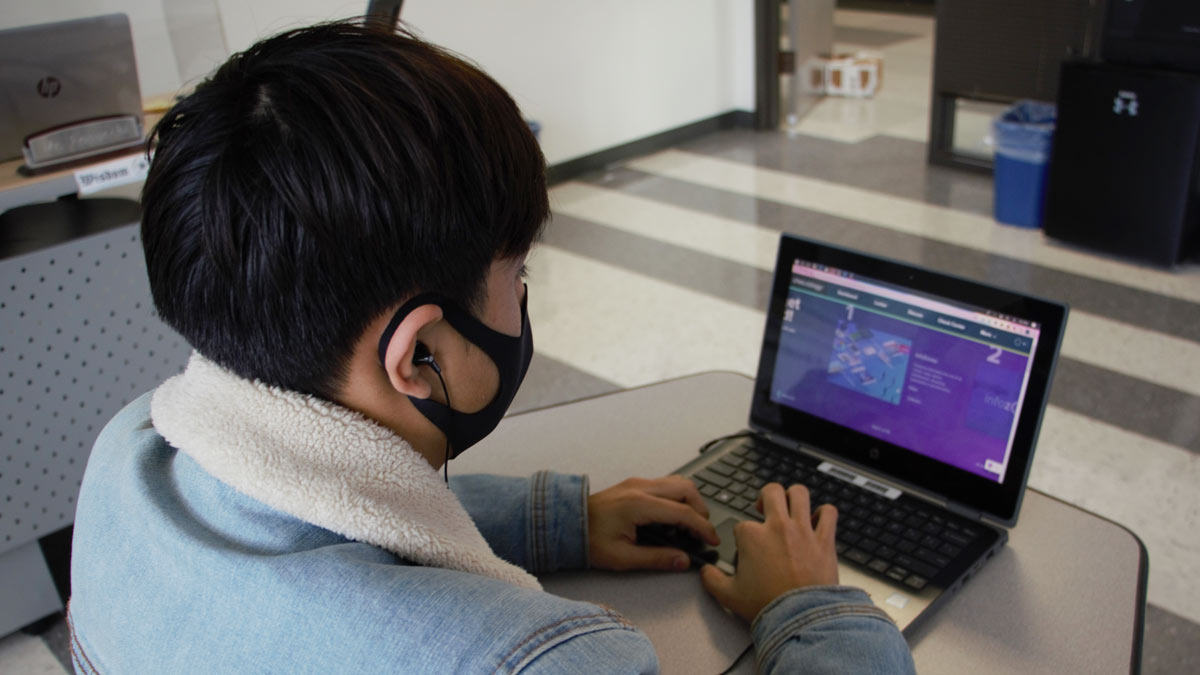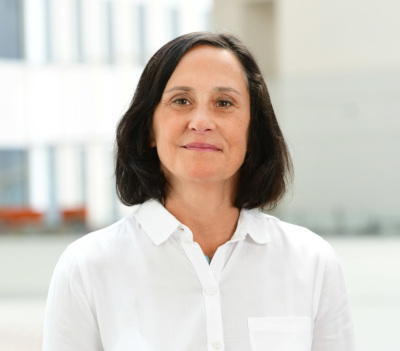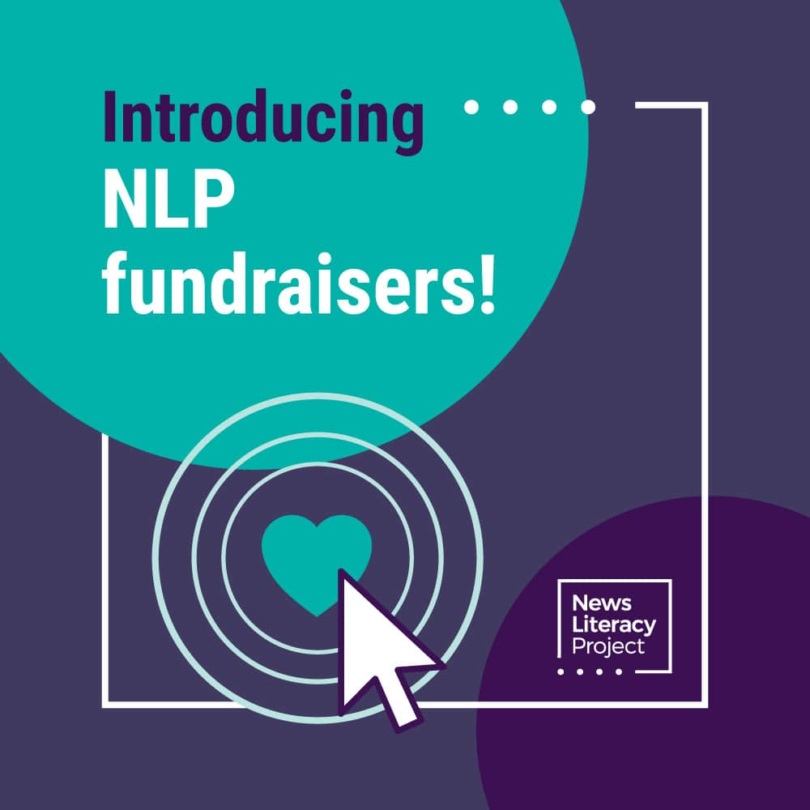
Delivering news literacy to journalism students, remotely
When the Houston Independent School District started the 2020-21 school year with 100% remote learning, journalism educator David Fanucchi needed to find an engaging way to teach news literacy to his students at Margaret Long Wisdom High School.
A colleague at Houston’s Bellaire High School, Andrea Negri, suggested NLP’s Checkology® virtual classroom. The browser based, e-learning platform with interactive lessons that students can do independently was exactly what Fanucchi was looking for.
“I thought Checkology provided a fantastic way for students to complete some relevant online lessons about journalism at a time when it is so difficult to keep their attention remotely,” Fanucchi says. “Teachers are struggling to find tools like that to use, and I was just so excited that these easy-to-understand modules were created and that I could use them in my classes.”
He assigned all seven of his classes the Checkology 101 course, which explores essential news literacy topics through the lessons “InfoZones,” “The First Amendment,” “Democracy’s Watchdog,” “Practicing Quality Journalism,” “Understanding Bias” and “Misinformation.” The course also includes related activities, such as source detection and evidence evaluation “missions” to reinforce the lessons.
“We went through them all in about three weeks (a total of six or seven class periods that each lasts about 90 minutes),” Fanucchi explains. “This was all done virtually on their own laptops.”
A deepened understanding
Dulce Macha, a sophomore in one of Fanucchi’s journalism classes, had a basic understanding of news literacy before she began using Checkology. “What I had known about news literacy was that it helps you judge the reliability and credibility of information given,” she says.
But the lessons deepened her knowledge. “The most surprising thing that I learned during the course was that there are many steps that go into a journalist’s work, such as checking for credibility and staying away from bias,” Macha says.
Fanucchi found the “Practicing Quality Journalism” lesson particularly valuable to his student journalists. “It taught them a real-life scenario of being a news reporter and covering the scene of a car crash. I think it did a phenomenal job of giving the students a real feeling of what a journalist does to ensure accuracy in his/her reporting,” he says.
Macha enjoyed that assignment and how Checkology enabled her to illustrate what she learned in different ways. “What I liked about the lessons was that they had areas where we had to choose the right answer and also areas where we had to be in the journalist’s shoes, and write our opinions on it,” she says.
‘Extremely important during these times’
Fanucchi says students need help understanding how credible journalism works and identifying reliable sources and fact-based information. “It is extremely important during these times of so much chaos in the news business. Students are having a harder time every day figuring out what the truth is,” he says.
Since studying news literacy, Macha is having an easier time doing just that. “It has changed the way I consume the news and judge content and sources. This course has given me a way of judging the credibility of the news that I read and judging whether it could be fake or not,” she says.
Macha has not yet needed to help friends or family members avoid being fooled by misinformation, but she is prepared to do so. “If there was a point where something like that happened, I would certainly help them out and talk to them about the ways they should judge the credibility and reliability of the information given,” she says.

